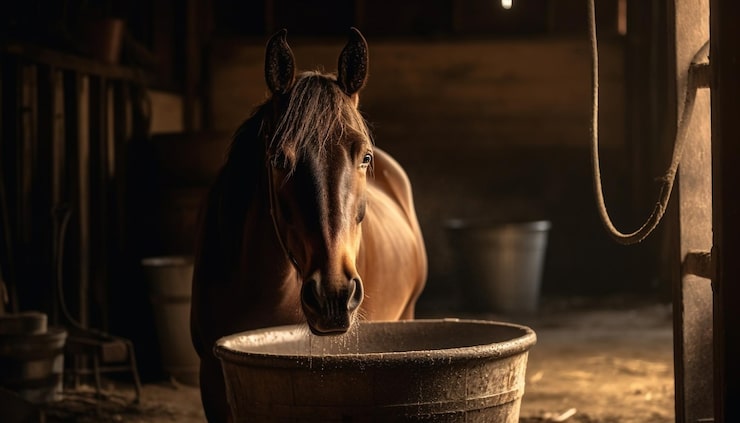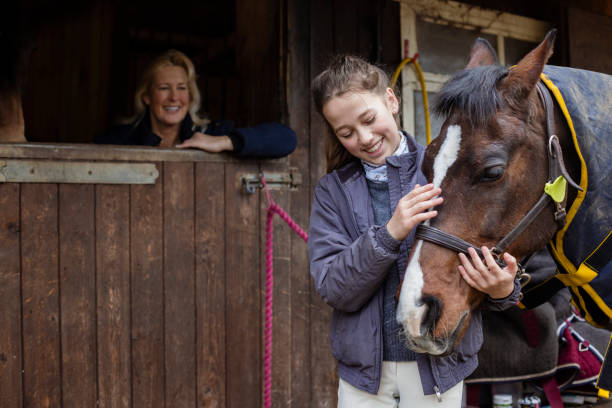For many horse enthusiasts, understanding the life stages of their beloved equine companions is crucial. A question that often arises is: when is a horse considered senior? While each horse ages differently, generally, a horse is considered senior when it reaches the age of 15 to 20 years. In this article, we will explore the factors that contribute to a horse being classified as senior and discuss how to care for them during their golden years.

Understanding Equine Aging
As horses age, their needs and behavior change. Much like humans, horses go through various life stages, and recognizing these changes is essential for providing appropriate care. A senior horse requires special attention to its diet, exercise, and health care needs. Learn more about caring for senior horses.
Signs Your Horse is Becoming Senior
There are several signs that indicate your horse is entering its senior years. These include:
- Graying around the face and mane
- Decreased energy and stamina
- Changes in body condition
- Dental issues
Recognizing these signs early can help you make necessary adjustments to your horse’s care routine.
Graying Hair and Mane
A common sign of aging in horses is the graying of hair around the face and mane. This change is similar to how humans develop gray hair as they age.
Decreased Energy Levels
Senior horses often exhibit decreased energy levels and stamina. They may not be as eager to participate in activities they once enjoyed.
Common Health Issues in Senior Horses
As horses age, they may encounter health issues that require special attention. Some of these include:
- Arthritis
- Dental problems
- Weight management challenges
- Weakened immune system
Working closely with a veterinarian can help manage these issues effectively.
Managing Arthritis
Arthritis is a common condition in senior horses, affecting their joints and mobility. Providing a comfortable environment and appropriate medication can help alleviate pain.
Dietary Needs for Senior Horses
Nutrition plays a vital role in maintaining the health of a senior horse. Their dietary needs change as they age, requiring adjustments to their feeding routine. Find detailed information on diet and health.
Feeding Challenges
Senior horses may face feeding challenges due to dental issues or a weakened digestive system. Providing easily digestible feeds can help.
Exercise for Senior Horses
Regular exercise is essential for maintaining the health and well-being of senior horses. However, their exercise routine should be adapted to their age and physical condition. Exercise tips for senior horses.
Low-Impact Activities
Engaging senior horses in low-impact activities, such as light trail rides or ground work, can help maintain their fitness without overexertion.
Creating a Comfortable Environment
Senior horses thrive in environments that cater to their unique needs. Considerations include:
- Soft bedding
- Accessible shelter
- Safe pasture
Providing these elements can enhance their quality of life. Best bedding options.
Pasture Management
Proper pasture management is crucial for senior horses to ensure they have access to quality grazing and safe surroundings. Pasture management tips.
Hydration in Senior Horses
Staying hydrated is vital for senior horses, especially during warmer months. Ensure they have constant access to clean, fresh water. Hydration tips.
Transportation Considerations
Transporting senior horses requires care and planning to minimize stress and discomfort. Transportation tips.
Veterinary Care for Senior Horses
Regular veterinary check-ups are essential for monitoring the health and well-being of senior horses. These visits help detect any health issues early and allow for prompt treatment.
Conclusion
Understanding when a horse is considered senior and adjusting their care accordingly can significantly enhance their quality of life. By recognizing the signs of aging and addressing their unique needs, horse owners can ensure their equine companions enjoy happy and healthy senior years.

Frequently Asked Questions
1. How can I tell if my horse is a senior?
Look for signs such as graying hair, decreased energy, and changes in body condition.
2. What diet is best for senior horses?
A diet that is easily digestible and meets their nutritional needs is ideal.
3. How can I help my senior horse stay active?
Engage them in low-impact exercises and activities suited to their physical condition.
This article contains affiliate links. We may earn a commission at no extra cost to you.
